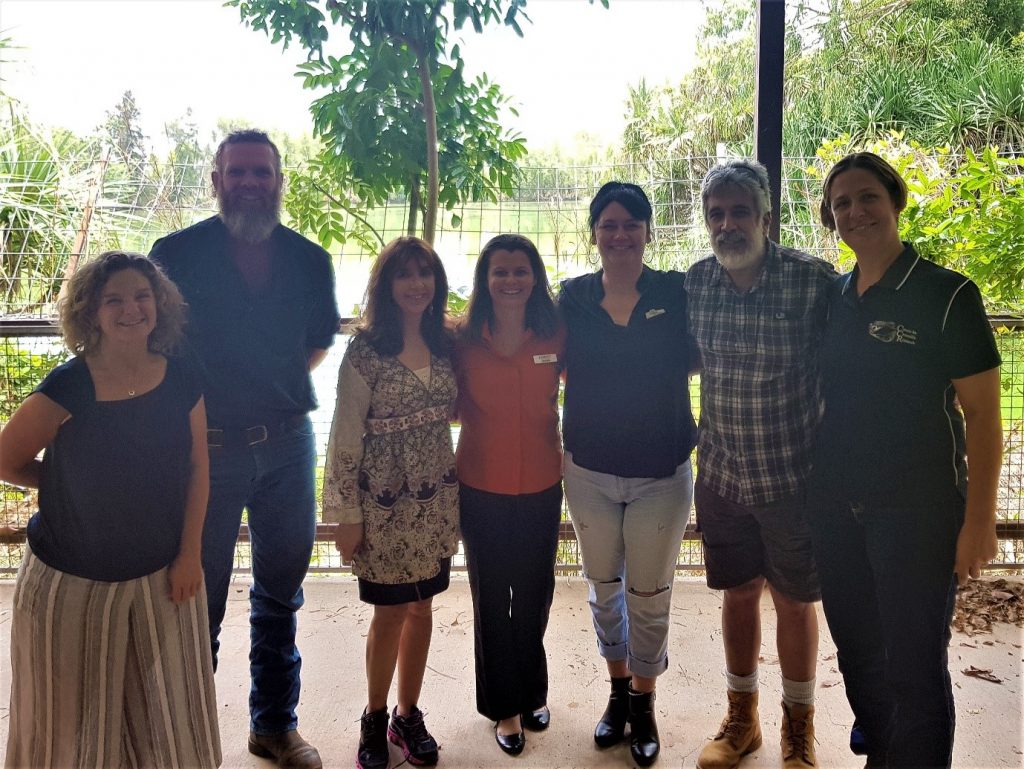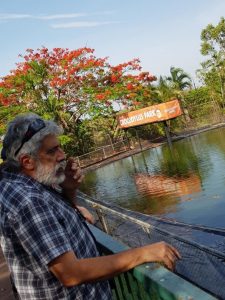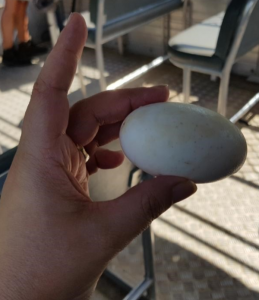Industry is driving the process to update and develop national skills standards for work with crocodiles.
Skills Impact met with some experts in the crocodile industry to identify the skills and knowledge requirements for job activities on farms and managing crocodiles in the wild.
While there are some unique skills required to work with crocodiles on farms versus in the wild, foundational skills are required in both environments. The two areas also intersect, with farms buying eggs that have been collected from the wild. Egg collection is a growing industry in the Northern Territory, providing economic benefit to Indigenous Communities who carry out this work.
Skills Impact will return to the Northern Territory later in November for further consultations to meet with more experts in the field. If you’re an expert or knowledgable and work in this field and wish to contribute to the project, please get in touch with the Project Manager, Susie Falk on 03 9321 3526 or [email protected].
One of the experts we met with was Dr Charlie Manolis, Chief Scientist at Wildlife Management International. Charlie has over 40 years’ experience working with crocodiles and has also been a key player in moulding this unique industry including drafting the “Code of Practice for the Humane Treatment of Wild and Farmed Australian Crocodiles” under which the industry standards are defined.
Others we spoke to included Dr Sally Isberg, Managing Director at Centre for Crocodile Research, and Craig Moore, Manager of Lagoon Crocodile Farm. Their feedback was that the skills and knowledge to support the welfare of crocodiles are fundamental across all work activities. They also recognised the need for national skills standards in understanding crocodile behaviour, egg collection, capturing and transportation.

“Farming any species is a responsibility,” says Dr Sally Isberg. “Training staff to understand that crocodile welfare is the pinnacle from where crocodile farming begins is imperative. Maximising welfare and farm production output are 100% aligned so having staff that are trained in this philosophy will ensure that animals are humanely farmed with appropriate access to food and housing requirements as well as being able to prevent and recognise disease early to reduce reliance on antibiotics. These, in turn, will increase the production output of farms and allow further expansion of this sustainable use industry with broad-reaching community benefits.”
The project team were invited for a tour around Crocodylus Park to learn about their breeding program and conservation work and see it all in action. Crocodylus Park is owned and operated by Wildlife Management International. The educational facility has played a key role in supporting the sustainability of crocodiles.


Skills Impact is consulting with Indigenous Australians throughout this project. We recognise that crocodiles have been part of Indigenous culture for thousands of years, as both respected entities and a source of food. Today, crocodile farming provides economic benefit for Traditional Owners through employment and royalty payments for egg collection on their land. We will consult with indigenous communities and ensure their voice is part of this project.
This project will address the need for accessible skills standards for working with crocodiles, that can be used across all forms of work, to promote safe and sustainable practices. Two units of competency that already exist for working with crocodiles will be reviewed, and new units developed where necessary, to reflect the full complexity and sophistication of the work activities.
For more information visit the project page
